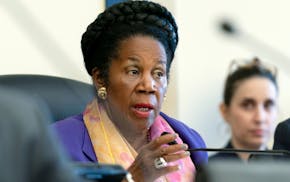Do you have questions about how the crisis will affect your credit union or your credit card? Here are some answers:
Q What is the impact of the government's financial rescue plan on credit unions?
A The impact on credit unions seems minimal. These nonprofit cooperatives do not hold many of the investments that are poisoning other financial institutions, so they have weathered the crisis fairly well.
Credit unions have kept about 70 percent of their mortgage loans on the books, meaning that they did not sell them to other institutions, according to the Credit Union National Association. The group said that less than 1 percent of credit union mortgages were in delinquency at the end of the first quarter. Delinquencies on other loans have edged up to 1 percent.
"If they've got their money in a federally insured credit union, they're just hunky dory," CUNA spokesman Patrick Keefe said.
Still, credit unions are lobbying Congress and the Treasury Department to be included in any legislation that would allow financial institutions to unload bad mortgages.
Q Does the administration's proposed bill contain a bailout provision for credit card and auto loan debt?
A The trade group representing the consumer credit industry would certainly like the $700 billion federal bailout proposal to cover credit card issuers and auto lenders. But that point is up for debate.
Q What case has the credit industry and auto lenders made?
A The American Financial Services Association this week asked Congress to include finance companies, which include auto lenders and credit card companies, in the list of institutions eligible for the bailout. It also wants auto loans to be included in the definition of the troubled assets that are plaguing Wall Street.
In particular, the group is concerned that financing for auto loans could grind to a halt if those institutions are not included. Auto lenders resell loans on Wall Street in much the same way that mortgages are resold. Auto delinquencies are low compared with mortgages, but investors in the loans are still wary. That means less liquidity in the market and tighter credit, making it tougher to get a loan. Some observers believe that if the government were to include auto debt in the bailout plan, consumers would have an easier time getting loans to buy cars.
"An auto is such an integral part of the economy," AFSA spokeswoman Lynne Strang said. "People need to have cars to get to their jobs. They need cars to look for employment."
Q Do outside experts agree?
A Depends who you ask, of course. Travis Plunkett, legislative director of the Consumer Federation of America, said the Bush administration has yet to make the case that car and credit card loans need to be bailed out to ensure stability of the credit markets. Including those debts in the rescue plan would send "a bad message to banks that they could make reckless loans," he said.
Q Will it make a difference for consumers?
A Plunkett said it's unlikely that ordinary consumers would notice whether provisions for credit cards and auto loans were included in the bill or not.
WASHINGTON POST

JD Vance, an unlikely friendship and why it ended

Lewis Lapham, editor who revived Harper's magazine, dies at 89

Body of missing Minnesota hiker recovered in Beartooth Mountains of Montana
Mike Lindell and the other voting machine conspiracy theorists are still at it

